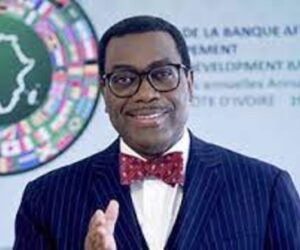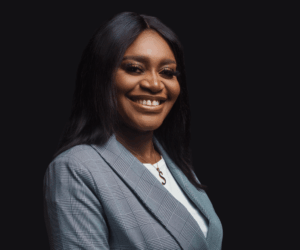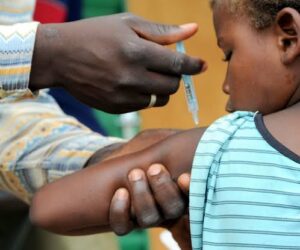•‘Many Nigerian women grow up internalising norms that discourage open interaction with men’
By Juliana Taiwo-Obalonye
Dr Loretta Oduware Ogboro-Okor is a United Kingdom-trained Consultant Obstetrician. In March this year, she has been the Director-General of the Edo State Diaspora Agency.
In this interview, she speaks about herself and how she’s been handling her new job.

How has your background prepared you for this job? And how has the experience been so far?
I am a Consultant Obstetrician and Gynaecologist with nearly 20 years of clinical experience in the UK National Health Service. My medical degree is from the University of Benin, and I furthered my education in Scotland with a master’s in public health research. During my specialty training in obstetrics and gynaecology, I realised the importance of effective teaching, leading me to earn a master’s in clinical education, certified to teach across Europe. I continue clinical practice while pursuing a PhD in law and criminology, focusing on trafficking and contemporary slavery.
Beyond medicine, I am an author, poet, social entrepreneur, and blogger, dedicated to sharing the often unseen challenges behind success, promoting values like delayed gratification. My upbringing in Benin, guided by my father’s teachings on self-worth and resilience, deeply shaped my character. He emphasised the power of knowledge and self-esteem, especially for girls, which inspires my efforts today to empower youth, emphasizing balance in raising both girls and boys.
My diverse background in healthcare, education, community engagement, and diaspora involvement has prepared me uniquely to lead the Edo State Diaspora Agency. I have long been active in the Edo diaspora globally—serving as the first female speaker of the Edo National Association worldwide and supporting diaspora communities financially and socially. This engagement continued closely with the Edo State government under Governor Obaseki and later Senator Monday Okpebholo who recognised the need for continuity and appointed me as the first Director-General when the agency was formally launched.
The agency’s mission, underpinned by the governor’s vision, focuses on three core mandates: welfare of Edo people abroad, fostering remittances, partnerships, and investment opportunities, and promoting a positive narrative about Edo State’s rich cultural and human heritage. Our work spans local and international liaison networks—over 120 volunteers globally—who represent Edo people across political, religious, and social lines, unified by a shared passion for community development.
Though the agency operates with limited state funding, it leverages collaboration with ministries, traditional institutions, and grassroots communities via local government and senatorial district liaisons to ensure inclusivity and impact. Our approach highlights the importance of listening and caring for Edo citizens worldwide, addressing welfare and mental health, and celebrating role models who reflect the state’s values.
Leadership in this role is challenging but profoundly rewarding, requiring resilience, vision, and a spirit of service. My varied career and personal ethos of humanity, dignity and perseverance equip me to navigate these challenges and advance the agency’s mission to bridge those within Edo State and its global diaspora, ensuring no Edo citizen is forgotten or left behind.
How has Diaspora remittance impacted Edo State’s work in attracting investment and driving visible socio-economic development?
Edo State significantly contributes to Nigeria’s diaspora remittances, accounting for an estimated 31% of the national total, projected at $7 billion out of Nigeria’s $24 billion remittances by 2024. This substantial inflow reflects the strong presence and economic engagement of Edo indigenes globally, with about five million people living outside the state excelling in various fields. Although a large part of remittances currently supports household needs such as education, healthcare, and family expenses, a key focus has shifted towards converting these personal remittances into strategic investments that fuel broader economic growth.
The Edo State Diaspora Agency, established in early 2025, serves as the critical institutional vehicle to harness and channel the diaspora’s resources more effectively. It aims to enhance visibility, coordination, and impact of remittances by shifting from individual support to multi-sectoral investment. The agency’s initiatives include quarterly press briefings, a helpline for diaspora engagement, and a global investment summit scheduled in Scotland in September 2025. This summit brings together influential investors and stakeholders from Scotland, Africa, and the UK, targeting sectors such as agriculture, food production, aquaculture, energy (notably fuel oil and gas), innovation, and education. These efforts are designed to create production hubs and industrial growth within Edo State, reversing the trend where remittances predominantly support household consumption rather than economic infrastructure.
The agency also focuses on harmonising and integrating the numerous diaspora organisations worldwide (e.g., over 50 Edo diaspora groups in London alone) through a comprehensive online portal. This platform will register Edo indigenes across the globe, assign unique community codes, and offer benefits such as payment facilitation, access to government services, investment incentives, and rebates on money transfers. It aims to provide recognition and coherence to the diaspora’s contributions, fostering unity and collective action for state development. Additionally, the agency is drafting the Edo State Diaspora and Foreign Policy document to ease doing business for diaspora investors, drawing lessons from successful models like India’s engagement with its diaspora. Special packages target second- and third-generation diasporans to encourage sustained investments and residency, which are critical for long-term development.
More visible outcomes include healthcare initiatives such as 500 free cataract surgeries planned in Edo State, and vocational skills programmes in partnership with Canadian groups, demonstrating the agency’s broad multi-sector approach. Education remains a key area, with plans for exchange programmes with Scottish schools and scholarships supported by diaspora remittances. By institutionalising and streamlining diaspora engagement, Edo State not only amplifies remittance flows but also attracts quality investments and partnerships that drive sustainable socio-economic transformation on the ground. This strategic repositioning underscores Edo’s leading role in Nigeria’s diaspora economy and serves as a pioneering model in leveraging diaspora resources beyond traditional remittance inflows towards impactful development investments.
In summary, Edo State’s diaspora remittance impact extends far beyond personal financial support; it is now a critical driver of economic revitalisation, healthcare improvement, education advancement, and cultural renaissance, facilitated through coordinated diaspora engagement and innovative investment platforms established by the Edo State Diaspora Agency. This comprehensive approach is yielding visible benefits in attracting investment and fostering sustainable development for Edo State and its people.
What roles do women professionals in the diaspora play in politics to advocate gender equity and influence policy, and what social or cultural changes are needed to empower them as leaders?
Women professionals in the diaspora play a crucial and multifaceted role in political spaces, acting not only as representatives of gender equity but also as active change agents influencing policies for more inclusive and just societies. Their political engagement goes beyond mere representation to encompass efforts that create meaningful social reform.
Historically, many Nigerian communities valued women leaders, as evident in traditional titles and even the naming of places after prominent women. However, various social disruptions, such as periods of military rule or economic challenges, contributed to a decline in women’s visibility and influence in leadership roles. Women in the diaspora often reflect on this history to understand how this decline happened and what can be done to reclaim lost ground.
A major theme they emphasise is the need for a paradigm shift in societal attitudes toward women. Women should be acknowledged as independent agents of leadership, rather than being defined solely by their familial roles as daughters, wives, or sisters. Empowering women politically requires investment in their education and training, as well as creating pathways for them to affect policy. Educated and trained women tend to reinvest their knowledge and resources back into their communities, thereby multiplying social and economic benefits.
Women professionals in the diaspora also confront socio-cultural barriers that limit their self-expression and participation in public life. For instance, many Nigerian women grow up internalising norms that discourage open interaction with men or label assertiveness negatively, which diminishes their confidence and public presence. In contrast, women in many Western contexts exhibit greater ease and freedom of expression. This difference can initially cause Nigerian women abroad to appear reserved or less engaged socially, but overcoming these socio-cultural constraints is critical to thriving and fully integrating into new environments.
There is also a thoughtful distinction made between “equality” and “equity.” Women in the diaspora advocate for equity, which means they seek fairness and justice by ensuring a level playing field and equal access to opportunities without having to conform to male standards or be sidelined. For example, in professional and political events, women want recognition and respect equal to their male counterparts, such as being properly introduced alongside men.
Challenges extend beyond politics into areas like healthcare and family decision-making, where patriarchal norms often require women to wait for male consent even during emergencies, highlighting ongoing struggles with gender norms. These examples illustrate the importance of fostering cultural education at home, teaching girls that questioning authority and asserting their rights are necessary, respectful actions rather than acts of defiance.
What I am saying is that, women professionals in the diaspora bring global perspectives to gender equity and political participation. They advocate for supportive legislation like the 35% affirmative action bill to increase women’s political representation. They serve as examples of overcoming sociocultural restrictions and inspire change in their home countries. Crucially, they emphasise that societal transformation must start within families to nurture confident and assertive women leaders. Their experiences demonstrate that women are indispensable to nation-building and governance, and society must both create equitable structures and embrace cultural shifts to fully empower women without excuse or compromise. Because, if you are not at the table, you cannot shake the table.
Is combating human trafficking part of the job of this agency?
The question of whether combating human trafficking is part of the Edo State Diaspora Agency’s mandate can be answered with a detailed explanation of the agency’s scope and activities, clarifying the distinctions and overlaps involved.
The Edo State Diaspora Agency is fundamentally responsible for matters concerning the diaspora community, which inherently involves migration—the movement of people either into or out of the state. This migration has two facets: immigration (people coming into a location) and emigration (people leaving a location). The agency works closely alongside its sister entity, the Edo State Migration Agency, with both agencies’ roles overlapping due to the interconnected nature of migration and diaspora.
Human trafficking is a criminal offence involving the exploitation of vulnerable individuals through coercion, deception, or force, without their consent, for profit. It differs from smuggling, where a person consents to being moved illegally across borders, such as being covertly transported from one country to another. Trafficking entails ongoing exploitation, while smuggling typically ends once the person is transported.
The Edo State Diaspora Agency aligns its efforts with combating human trafficking through collaboration with other agencies, including the Edo State Migration Agency. For instance, soon after the agency’s establishment, cooperation with the Migration Agency was prioritized. The diaspora agency also operates community outreach programmes like “Abroad Matters” through the Edo State Broadcasting Service, providing truthful information about life abroad to dissuade irregular migration and trafficking risks. It promotes informed and dignified migration choices, emphasizing legal pathways and awareness of the hardships illegal migration entails, such as social isolation, lack of access to basic services, and mental health burdens.
Moreover, the agency supports youth education in universities to reshape mindsets about migration, which are common recruiting grounds for traffickers. They also engage with women through the Edo State Women Association, an arm of the diaspora agency, providing soft loans to empower market women and reduce economic vulnerability that fuels irregular migration.
The agency advocates for creating lawful avenues for work and study abroad with agreements requiring return bonds, which demystify the allure of illegal migration. This strategy helps reduce pull factors encouraging irregular migration.
Additionally, the government’s infrastructural development, including road construction and investment promotion, aims to improve the local economy by attracting investors and creating jobs, thus addressing critical push factors of migration such as poverty and unemployment. This economic approach directly contributes to preventing human trafficking and irregular migration by offering tangible livelihoods within Edo State.
Human trafficking is officially recognised as part of the state’s challenges, addressed comprehensively by the Edo State Task Force Against Human Trafficking established in 2017. This task force includes members from security agencies, NGOs, and government offices, working to rehabilitate victims and reduce trafficking. The Edo State Diaspora Agency’s work dovetails with such efforts, with overlapping roles in prevention, awareness, and support for returnees.
Overall, combating human trafficking is not the sole mandate of the Edo State Diaspora Agency but is a critical part of its broader responsibility in managing diaspora and migration issues through education, partnership, economic empowerment, and inter-agency collaboration to foster safe, informed, and legal migration pathways and to reduce exploitation risks.
This comprehensive approach demonstrates that the Edo State Diaspora Agency plays an important supportive and complementary role in combating human trafficking alongside the dedicated task force and migration agency within Edo State, making it a key stakeholder in the fight against trafficking and irregular migration.
What foods connect you to your Edo heritage? What are your favourite travel dishes, and how do you keep these traditions alive abroad?
Ah, I love half-ripe or semi-ripe plantain and owo soup – that’s my favourite dish. When I travel, I don’t really have one single favourite dish; I like to try whatever people eat in the places I visit. One thing I know for sure about myself is that I love meat. So, any meaty dish is good for me. How do I keep these traditions alive when abroad? Well, my daughter often says, “Mummy, this our house is very Nigerian. Outside the door is Sheffield.” So even in the house where I live, it’s very, very Nigerian. Everything inside reflects that. I’m not someone who likes to buy food; I love to make homemade food because those are the things that make people truly feel connected while food bought outside makes people fat at times.
For someone with such a demanding role, balancing clinical duties, academic pursuits, and leadership, what do you do to unwind?
Oh yes, what I do to unwind is write. If you google my name, you’ll find plenty of my written public commentary. I’ve always loved writing and reading, so I spend a lot of time on writing and research. I also enjoy watching shows and just hanging out. I like doing my humanitarian work and watching cartoons with the children as well. That’s how I usually unwind. Since my laparoscopic surgeries, I started playing video games. I also love watching anime with the children. So, those small cultural habits really keep me grounded.
Can you share an inspiring or challenging story from your work with Edo indigenes abroad that made you proud or highlighted the importance of your work?
The challenge in my interactions with other indigenous people abroad in the diaspora is that I’ve found we are very, very divided. We’re very heterogeneous, meaning we all come from varied backgrounds. You find people who have crossed the desert, those who crossed the Mediterranean, and others who didn’t make those desert journeys because they came by air. You find the rich, the poor, professors, astronauts, engineers, and at the same time, those who work in morgues and those involved in prostitution.
We are very diverse, and that diversity is a challenge because some may think they are superior to others. For me, having operated on human beings all my life, I have never seen any blood colour other than red, so to me, we are all equal. As the director-general of a state diaspora agency, I cannot afford to be partisan. Everyone is important. Holding these positions is a big challenge, and one of the first things we are doing is harmonising our people. Very soon, we will start seeing the impact when our big portal goes live. That, to me, is the biggest challenge. But I also believe it is our greatest strength because in our diversity, if we unite, we will be a force to reckon with. That is why we must all come together. One moment I clearly remember in my recent interactions with the adult state diaspora is something I can truly reflect on.
A young woman passed away in Russia recently. She was killed, and unbelievably, her father was fighting over her property and money. In Edo, that is forbidden. You’re supposed to be buried by your children, not have your child die and then fight over property. I was shocked; I couldn’t believe it. This girl had siblings still in school, so we all came together and agreed that the siblings going to school should receive a portion of the money. To me, it was unimaginable how a father could do that.
This story ties closely to how my father raised me. He had a major influence on my life. Both my parents taught me the value of resilience.
What key lessons or sayings from your father guide you through challenges, especially as a woman leader and advocate?
My father always told me to believe in myself and that I could achieve anything with what lies between my ears—my brain. He reminded me, “Remember whose daughter you are, remember your roots.” He would tell me stories about my mother, grandmother, and ancestors like Princess and Ovonramwen who was exiled to Calabar. My father constantly reminded me not to let anyone make me feel inferior, not to paint on someone else’s canvas, and never to let anyone paint on mine.
He taught me to stand tall and take pride in who I am. Whatever I do, my dad taught me to do it well. Growing up with my dad and mum gave me a balanced perspective—if I wanted classical music, I’d go to my dad; for local music, I’d go to my mum. This gave me a broad outlook on life. I want to use this moment to appeal to fathers: your daughters’ self-esteem is in your hands.
My father would wake me up saying, “Taa, Taa, wake up! It’s a bright, beautiful day. Imagine how beautiful you are every day. Yesterday, when you were walking, I thought your legs were your best assets.” He taught me how to sit with dignity, poise, and finesse. Hearing someone tell you daily how beautiful you are for over 20 years builds your confidence—and so, I don’t bother what others say about me. I know who I am, who God says I am, and that’s why I wrote the book My Father’s Daughter.
Some of my proudest moments at work come when patients return just to thank me and say I’m a skilled gynaecological surgeon. I also feel proud when my students come back saying they’ve been inspired and are now achieving great things. These moments remind me of the lessons passed on. On the diaspora front, moments like being in Moscow with the agency are special, but often, my proudest moments are simple acts of kindness and connection.
I’m also very proud when my husband performs complex surgeries—procedures others might travel to America for—and they are done here in Nigeria. I’m proud when my daughter graduates with first-class honours in law and I’m proud when my mother dances joyfully, celebrating the day the Lord has made. I’m proud when my son creates beautiful, artistic drawings. I cherish the small joys and achievements, like writing My Father’s Daughter in a week.
Currently, at the diaspora agency, I’m proud we hosted our first global investment summit in Scotland on September 20-22. It was the first event of its kind in our two-state area, and as the pioneer Director General, it’s the highlight of my job so far. In less than six months in office, organising this summit is my proudest accomplishment, and I’m excited to share it with the world.








